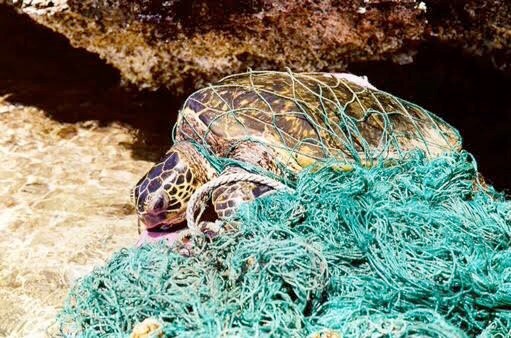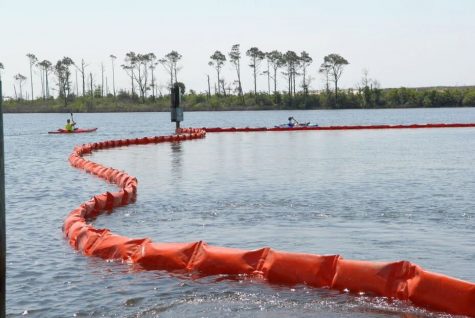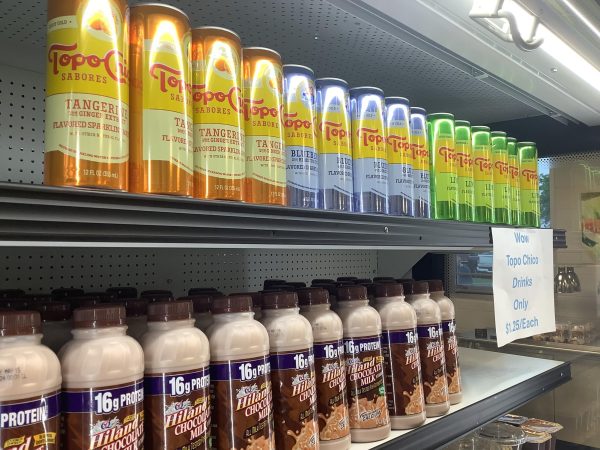First Steps to Raising Awareness About Ocean Pollution

Most people know that our oceans take up more than 70 percent of Earth, but fail to acknowledge how vital these ecosystems are to our lives. As humans, we continue to harm our oceans with massive amounts of pollution each year. If we do not want to have unrecognizable oceans in 100 years, we need to educate ourselves about the importance of the our blue ecosystem.
The first step we should take is to simply spread the cause. People need to understand the effects of their actions and how we will all eventually suffer from the pollution. There are groups like Rise Above Plastics that we can join, but there are even simpler ways to make a change. Social media is a great way to get the message out to a wider demographic. Even if your platform only reaches a few hundred people, every little change helps. Perhaps the easiest way to raise awareness is living by example. Only drink from a reusable water bottle, use canvas bags at the grocery store and always recycle. If we want to save our oceans, every person needs to know and understand the cause.
How Does Meaningful Change Happen?
Change is never an easy task, but in the case of our oceans it is necessary. In order for meaningful change to be made, there need to be strong leaders advocating for the cause. Yes, it would be incredibly helpful and influential if celebrities or politicians became involved to make a change, but that is not completely necessary. The shift does not have to be monumental right away; it can start small. Families can take steps to recycle and only use reusable plastics. Students can start a recycling drive at school. Grocery stores can opt to only offer reusable bags at checkout counters. The change doesn’t have to be huge—it just has to happen. Every small shift will eventually combine to become immensely impactful.
What Does the Future of the Ocean Look Like to You?
If we keep trekking down the path we are on, the crystal clear waters will turn murky and the beautiful fish will no longer be freely swimming. Plastics will constantly wash in with the tide and nothing will seem clean. Entire ecosystems will vanish and species will go extinct. The oceans will no longer be the place of a relaxing getaway, but instead a plastic and toxic wasteland. If we truly try to make a change, the future of the ocean can drastically improve. The oceans could become an even better environment for the millions of animals that call the water home. Without the threat of extinction, species would be free to thrive. The future of the ocean can look extremely beautiful if we become committed to keeping the water clean.
What Are Causes and Effects of Ocean Pollution?
The major contributors to ocean pollution are the waste of humans, so we have an obligation to right the wrongs. Pollution is climbing at an alarming rate every year due to the amount of industrial and wasteful activities that humans take part in every year. Oil from vehicles, farms and septic tanks make their way into the ocean every day and pollute the marine world.
Air pollution can also sink into water and cause contamination. Plastics and chemicals from factories are irresponsibly deposited in the ocean to create further damage to the ecosystem. Chemicals and toxins can raise the thermal temperature of certain areas of the ocean, changing the conditions of the world around them and having serious consequences on the habitats of all kinds of creatures. Oil spills can spread across miles and miles of ocean, killing thousands of species and taking years to recover from. Mining efforts deep within the ocean deposit huge amounts of sulfide along the ocean floor and break it down, destroying habitats and protective barriers for plants and animals. Ocean pollution can poison wildlife, block sunlight, diminish the natural supply of oxygen and cause health defects among animals.
How Does Ocean Pollution Affect Us?
Besides affecting marine life, ocean pollution does in turn affect our own lives for the worse. When part of our diet includes seafood that may have been infected with chemicals or toxins from ocean pollution, our own bodies may suffer. Polluted food can harm our endocrine and reproductive system, damaging our nervous systems or kidneys. In the long run, results as serious as Alzheimer’s, Parkinson’s disease, cancer and heart disease can occur. In addition, the intake of affected water causes thousands of cases of waterborne infectious diseases every year. Over 3,575,000 deaths are caused annually by these diseases due to ocean pollution alone. By doing whatever we can to lessen and alleviate water pollution, we are not only helping the marine ecosystem—we are saving ourselves.
What Kinds of Solutions Can Be Implemented?
Although it would take communication and cooperation on a global scale to take real steps towards wiping out ocean pollution, there are lots of little things that cities can do to make a dent. One of these steps is to be more responsible with substances such as fertilizer that contain harmful chemicals. By doing our best to prevent spills and runoff that could infect the water supply, we can play our part in keeping our water chemical-free.
Another way to protect our ecosystem is for cities to install booms in bodies of water. Debris booms and oil booms are barriers that capture potential polluting substances and prevent them from affecting the water. Additionally, turbidity barriers that contain and control areas with large amounts of silt can be implemented so that the soil does not spread through the water. All areas should have sewage management plans in place so that leakages and runoff do not occur. They could also implement anti-pollution laws and guidelines for companies and individuals to follow. If small areas work to take baby steps, we will all be stepping forward together into a cleaner future.
https://motherboard.vice.com/en_us/article/bmjqvz/by-2100-everything-you-know-about-the-ocean-will-be-wrong
https://www.extension.harvard.edu/professional-development/blog/making-change-happen-five-keys-driving-successful-change-initiatives
https://managementisajourney.com/four-realities-leaders-must-accep-to-make-meaningful-change/
http://www.surfrider.org/programs/plastic-pollution
http://www.un.org/sustainabledevelopment/blog/2017/06/feature-climate-change-and-the-worlds-oceans/
https://oceanservice.noaa.gov/facts/pollution.html
Causes, Effects and Solutions to Ocean Pollution That Could Save Our Planet
http://www.planetaid.org/blog/how-ocean-pollution-affects-humans
https://www.erosionpollution.com/water-pollution-solutions.html

Catie Poli is a junior here at St. Dominic. She is a member of CRU and Ambassadors. Catie loves playing for the varsity girls basketball team. When she...

Senior Maria Klassen is involved in theatre, choir and pro-life club. In her free time, she enjoys making to-do lists, smelling candles and playing music....















